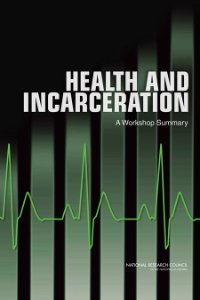By Jingxuan Zhao; Jessica Star; Xuesong Han, et al
IMPORTANCE People with a history of incarceration may experience barriers in access to and receipt of health care in the US. OBJECTIVE To examine the associations of incarceration history and access to and receipt of care and the contribution of modifiable factors (educational attainment and health insurance coverage) to these associations. DESIGN, SETTING, AND PARTICIPANTS Individuals with and without incarceration history were identified from the 2008 to 2018 National Longitudinal Survey of Youth 1979 cohort. Analyses were conducted from October 2022 to December 2023. MAIN MEASURES AND OUTCOMES Access to and receipt of health care were measured as self reported having usual source of care and preventive service use, including physical examination, influenza shot, blood pressure check, blood cholesterol level check, blood glucose level check, dental check, and colorectal, breast, and cervical cancer screenings across multiple panels. To account for the longitudinal study design, we used the inverse probability weighting method with generalized estimating equations to evaluate associations of incarceration history and access to care. Separate multivariable models examining associations between incarceration history and receipt of each preventive service adjusted for sociodemographic factors; sequential models further adjusted for educational attainment and health insurance coverage to examine their contribution to the associations of incarceration history and access to and receipt of health care. RESULTS A total of 7963 adults with 41 614 person-years of observation were included in this study; of these, 586 individuals (5.4%) had been incarcerated, with 2800 person-years of observation (4.9%). Compared with people without incarceration history, people with incarceration history had lower percentages of having a usual source of care or receiving preventive services, including physical examinations (69.6% vs 74.1%), blood pressure test (85.6% vs 91.6%), blood cholesterol level test (59.5% vs 72.2%), blood glucose level test (61.4% vs 69.4%), dental check up (51.1% vs 66.0%), and breast (55.0% vs 68.2%) and colorectal cancer screening (65.6% vs 70.3%). With additional adjustment for educational attainment and health insurance, the associations of incarceration history and access to care were attenuated for most measures and remained statistically significant for measures of having a usual source of care, blood cholesterol level test, and dental check up only. CONCLUSIONS AND RELEVANCE The results of this survey study suggest that incarceration history was associated with worse access to and receipt of health care. Educational attainment and health insurance may contribute to these associations. Efforts to improve access to education and health insurance coverage for people with an incarceration history might mitigate disparities in care.
JAMA Health Forum. 2024;5(2):e235318. doi:10.1001/jamahealthforum.2023.5318




